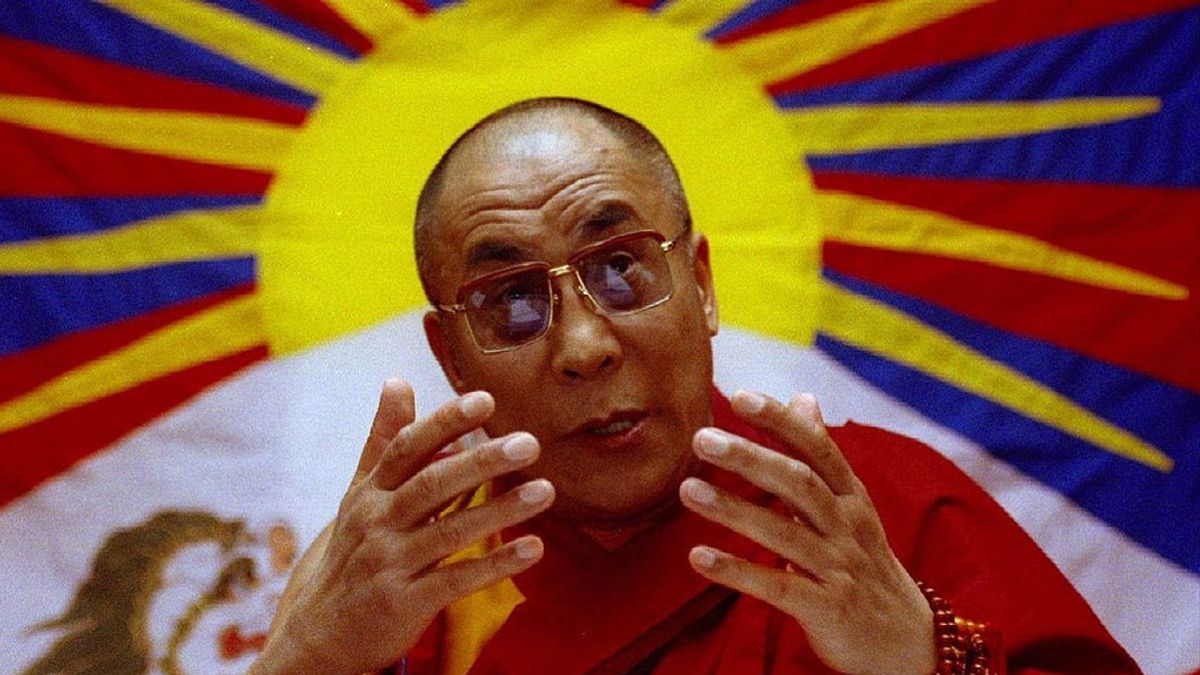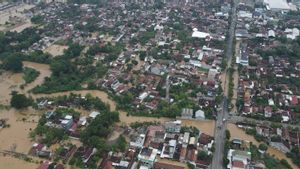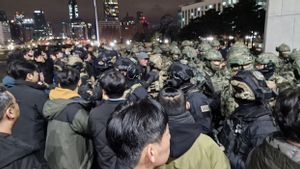JAKARTA - Xi Jinping meets Tibet. Through banners, pictures, messages in his name, and other means, Xi Jinping is trying to remove the influence of the Dalai Lama from Tibet.
The Associated Press wrote a report about his experience visiting the Tibetan city of Lhasa. Strong winds fly flags with inscribed prayers on a Buddhist temple.
Opposite the temple a red banner bearing Xi Jinping's message was displayed. "Xi Jinping's new socialist ideology with Chinese characteristics is a guide for the whole party and the whole nation to strive for the great rejuvenation of China," read the banner.
The visit is on the Chinese government's agenda, where they open up space for more than a dozen foreign journalists to cover life in Tibet first-hand. In another report, Reuters described the abundance of banners, pictures and messages in corners of Lhasa.
Not only Xi Jinping. Similar attributes also reveal the figures of other Xi Jinping colleagues in the Chinese Communist Party. It is very easy to find them all in the corners of the Capital City.
Not only on the streets, pictures of Xi Jinping are also found in classrooms, offices of institutional institutions, to homes, even the bedroom of a Buddhist monk. The journalists were also met with civic and religious figures to be interviewed during the five-day 'tour'.
IrregularitiesOne of the monks at Jokhang Temple, Lhasa was asked by Reuters journalists who the spiritual leader in his head was. The monk said the name "Xi."
"I am not drunk... I speak freely to you," said the monk named Lhakpa.
The Reuters journalist explained how Lhakpa appeared to be trying to convince him he was telling the truth. The journalist also described the atmosphere of the interview in the temple grounds which was filled with government surveillance and monitoring, including through security cameras.

The Associated Press coverage team also found the same answer. When visiting one of the villages east of Lhasa, Baji, the journalist spoke with a resident named Tsering Yudron.
Yudron is an accountant. He is 25 years old. In front of the journalist, Yudron said the poverty alleviation campaign by the Chinese government had changed their lives.
"Times have changed, so people's demands have changed. People needed religious beliefs as their spiritual food in the past, but now we don't," said Yudron.
Life without the Dalai Lama
Prior to this tour, the western media had widely reported on how China was trying to erase the Dalai Lama's influence in Tibet. China even openly offers life to Tibetans without the Dalai Lama.
The way, through the massive construction of roads and schools. Several programs and campaigns are also designed to erode the Dalai Lama's influence.
[LIFESTYLE: Dalai Lama Releases First Musical Album Inner World and Spells the Seven Buddhas Inside]
The journalists said, except for those who smelled like Xi Jinping and his colleagues, they did not find any other symbols of figures, let alone the Dalai Lama. The Chinese government is also said to have allocated billions of dollars for the construction of roads, electricity systems, airports, trains, schools, and other life expectancy programs.
"Tibet has eradicated extreme poverty... People are now living a better life and living a life of contentment. A new socialist form in Tibet has taken its shape," the Chinese government's 2019 report on Tibet.
*Read other information about CHINA or read other interesting articles from Putri Ainur Islam.
Other BERNASThe English, Chinese, Japanese, Arabic, and French versions are automatically generated by the AI. So there may still be inaccuracies in translating, please always see Indonesian as our main language. (system supported by DigitalSiber.id)













